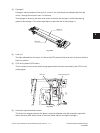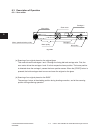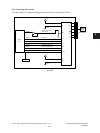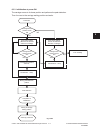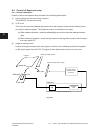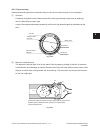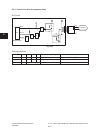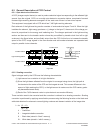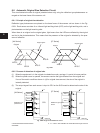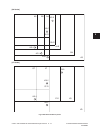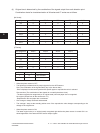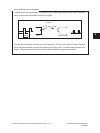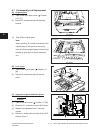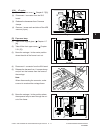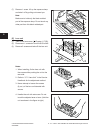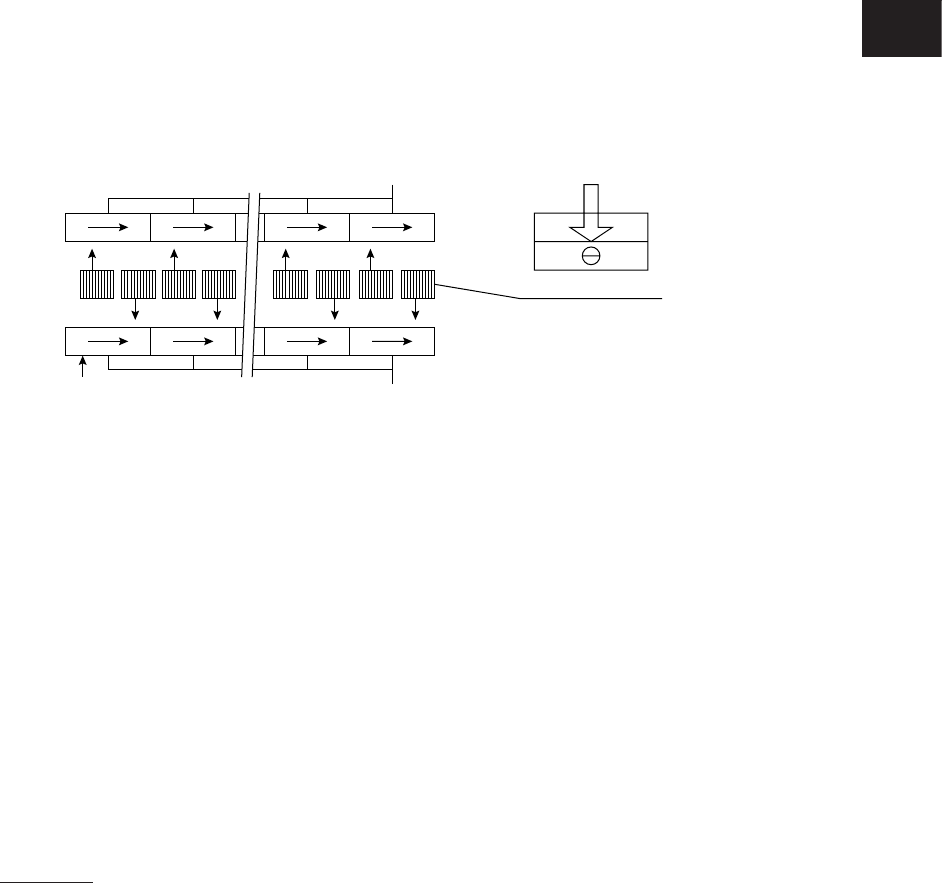
e-STUDIO350/352/353/450/452/453
SCANNER
6
6 - 11
© 2003 - 2008 TOSHIBA TEC CORPORATION All rights reserved
I = k x (S — K)
(W — K)
k : Coefcient
S : Image data before correction
K : Black data (stored in “black” memory)
W : White data (stored in “white” memory)
6.5 General Description of CCD Control
6.5.1 Opto-electronic conversion
ACCD(charge-coupleddevice)isusedtoproduceelectricalsignalcorrespondingtothereectedlight
amount from the original. CCD is a one-chip opto-electronic conversion device, comprised of several
thousand light-receiving elements arranged in a line, each one of them is a few micron square.
This equipment is equipped with a CCD which has 7,400 light-receiving elements.
Each element of the light-receiving section consists of semiconductive layers P and N. When the light
irradiates the element, light energy produces a (-) charge in the layer P; the amount of the charge pro-
duced is proportional to the energy and irradiating time. The charges produced in the light-receiving
section are then sent to the transfer section where they are shifted by transfer clock from left to right
asshowninthegurebelow,andarenallyoutputfromtheCCD.Atthistime,toincreasethetransfer
speed of the CCD, image signals in the even-number and odd-number elements are separated and
output in parallel via two channels.
6.5.2 Shading correction
Signal voltages read by the CCD have the following characteristics:
(1) Light source has a variation in its light distribution.
(2)Sincethelightbeamreectedfromtheoriginalisconvergedusingalens,thelightpathis
the shortest at the center of the CCD and the longest at ends. This causes difference in the
amount of light reaching the CCD (i.e. the light amount is maximum at the CCD center, gradu
-
ally decreases toward ends).
(3)Eachofthe7,400elementsvariesinopto-electronicconversionefciency.
These variation need to be corrected and this correction is referred to as shading correction. Shading
correction is performed by applying normalization process using the following formula on the black and
white data obtained in advance to correct lighting variance and element variation of the image data.
1
7397
7398 7399 7400
2
3 4
Transfer clock
Transfer section
Transfer section
Light receiving section
Light energy
Iayer N
Iayer P
Transfer clock
Shift register
Details of light receiving
Fig. 6-501



